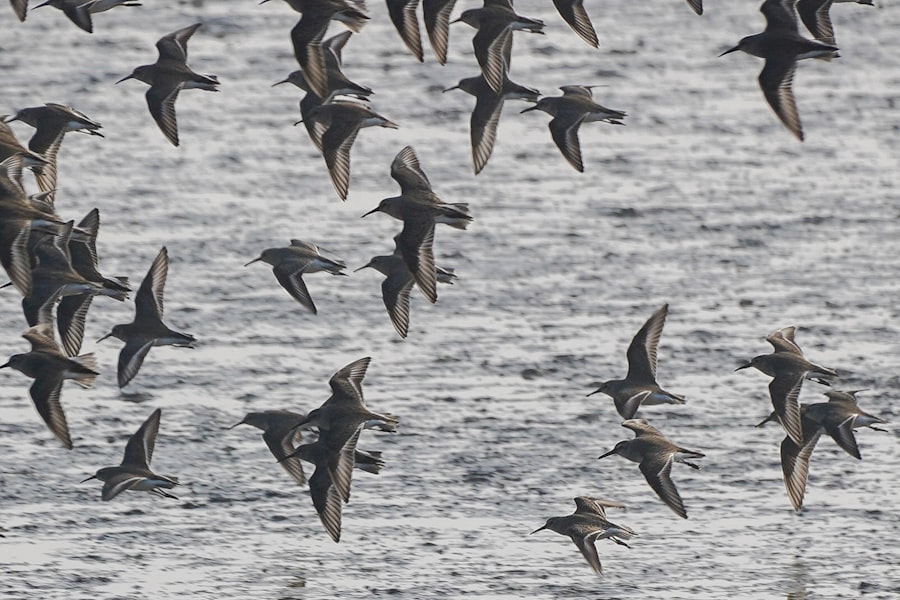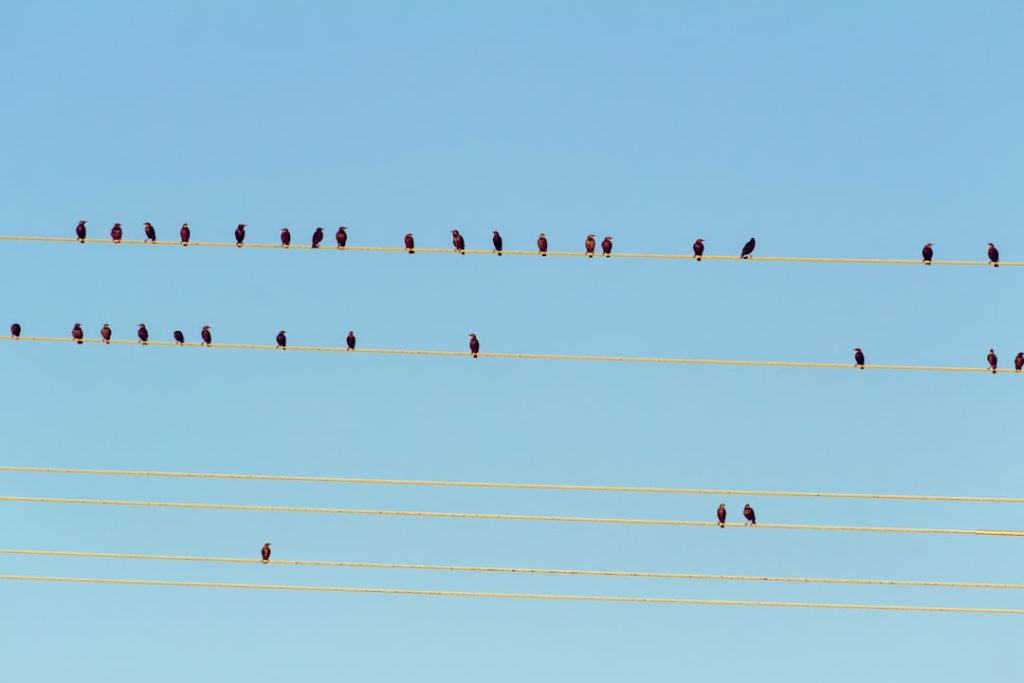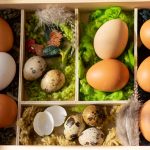Pigeons and chickens are two commonly domesticated bird species with distinct characteristics and uses. Pigeons, scientifically known as Columba livia domestica, have been domesticated for thousands of years and are renowned for their intelligence and social nature. They produce a distinctive cooing sound and possess remarkable navigational abilities, often used in racing competitions.
Pigeons are kept as pets, used for racing, and sometimes raised for meat consumption. Chickens, belonging to the species Gallus gallus domesticus, are primarily domesticated for their eggs and meat. They exhibit a wide variety of breeds, each with unique physical traits and colorful plumage.
Chickens are known for their clucking vocalizations and thrive in social flock environments. While pigeons and chickens differ in many aspects, they share some common traits. Both species demonstrate high adaptability to various environments and form strong social bonds within their flocks.
They also exhibit proficient foraging skills and possess strong homing instincts. However, the care, housing requirements, and management practices for pigeons and chickens differ significantly, reflecting their distinct evolutionary histories and domestication purposes.
Table of Contents
- 1 Differences in Care and Housing
- 2 Potential Health Risks
- 3 Feeding and Nutrition
- 4 Social Dynamics and Behavior
- 5 Creating a Safe Environment
- 6 Can Pigeons and Chickens Coexist?
- 7 FAQs
- 7.1 Can you keep pigeons and chickens together?
- 7.2 What are the considerations for keeping pigeons and chickens together?
- 7.3 Do pigeons and chickens get along?
- 7.4 What are the benefits of keeping pigeons and chickens together?
- 7.5 Are there any potential drawbacks to keeping pigeons and chickens together?
- 7.6 What should I consider when designing a coop or aviary for pigeons and chickens?
Key Takeaways
- Pigeons and chickens are both popular backyard birds, but they have different care and housing needs.
- Chickens require more space and protection from predators compared to pigeons.
- Pigeons are susceptible to respiratory diseases, while chickens are prone to parasites and infections.
- Pigeons primarily eat grains and seeds, while chickens need a balanced diet of grains, greens, and protein.
- Chickens are social animals that establish a pecking order, while pigeons prefer to roost and forage in flocks.
Differences in Care and Housing
Pigeons are highly social birds that thrive in a flock environment. They require ample space to fly and exercise, so a large aviary or loft is essential for their well-being.
Housing and Dietary Needs
Pigeons also need access to nesting boxes or shelves where they can build their nests and raise their young. Additionally, pigeons require a specialized diet that includes grains, seeds, and grit to aid in digestion. On the other hand, chickens are ground-dwelling birds that require a secure coop for protection from predators and the elements. The coop should be spacious enough to accommodate the size of the flock and provide nesting boxes for egg-laying hens.
Outdoor Access and Predator Protection
Chickens also need access to an outdoor run where they can scratch and peck for insects and plants. In terms of diet, chickens require a balanced feed that provides essential nutrients for egg production and overall health. It is important to note that chickens are more susceptible to predators than pigeons, so their housing needs to be more secure.
Summary of Care Requirements
In summary, pigeons require a large aviary or loft with nesting boxes, while chickens need a secure coop with outdoor access for scratching and pecking. Additionally, pigeons need a specialized diet that includes grains and seeds, while chickens require a balanced feed for egg production.
Potential Health Risks

Pigeons and chickens can both pose potential health risks to humans and other animals if proper precautions are not taken. Pigeons are known to carry diseases such as salmonella, E. coli, and histoplasmosis, which can be transmitted to humans through contact with contaminated droppings or feathers.
Additionally, pigeons can harbor parasites such as mites and lice, which can infest their living environment and pose a risk to other birds or animals. Chickens can also carry diseases such as salmonella and avian influenza, which can be transmitted to humans through contact with contaminated eggs or poultry products. Additionally, chickens can harbor external parasites such as mites and lice, as well as internal parasites such as worms, which can pose a risk to other birds or animals.
To minimize the risk of disease transmission, it is important to practice good hygiene and biosecurity measures when handling pigeons or chickens. This includes regular cleaning and disinfection of their living environment, as well as proper handwashing after handling the birds or their eggs. It is also important to monitor the health of the birds regularly and seek veterinary care if any signs of illness are observed.
In conclusion, both pigeons and chickens can carry diseases and parasites that pose potential health risks to humans and other animals. It is important to practice good hygiene and biosecurity measures to minimize the risk of disease transmission.
Feeding and Nutrition
Pigeons and chickens have different dietary requirements due to their unique nutritional needs and feeding behaviors. Pigeons are granivorous birds that primarily feed on grains and seeds in the wild. In captivity, they require a specialized diet that includes a variety of grains such as corn, wheat, barley, and millet, as well as seeds such as sunflower seeds and safflower seeds.
Pigeons also need access to grit, which aids in digestion by grinding up food in their gizzards. Chickens, on the other hand, are omnivorous birds that require a balanced feed that provides essential nutrients for egg production and overall health. Commercial chicken feeds are formulated to meet the nutritional needs of different life stages, such as starter feeds for chicks, grower feeds for young birds, layer feeds for egg-laying hens, and broiler feeds for meat-producing birds.
In addition to commercial feeds, chickens also benefit from access to fresh greens, fruits, vegetables, and protein sources such as insects or mealworms. It is important to provide both pigeons and chickens with access to clean, fresh water at all times to prevent dehydration and maintain overall health. Additionally, it is important to monitor their body condition and adjust their diet as needed to prevent obesity or malnutrition.
In summary, pigeons require a specialized diet that includes grains, seeds, and grit, while chickens require a balanced feed that provides essential nutrients for egg production and overall health.
Pigeons and chickens have different social dynamics and behaviors due to their unique flock structures and communication methods. Pigeons are highly social birds that form strong pair bonds with their mates and maintain complex social hierarchies within their flocks. They communicate through a variety of vocalizations such as cooing, crooning, and bill-clapping, as well as visual displays such as bowing, puffing up their feathers, and courtship dances.
Chickens are also social animals that thrive in a flock environment. They form strong social bonds with their flock members and establish a pecking order based on dominance and submission. Chickens communicate through a variety of vocalizations such as clucking, cackling, and crowing, as well as visual displays such as fluffing up their feathers, wing-dropping, and aggressive posturing.
It is important to provide both pigeons and chickens with ample space to exercise and express natural behaviors within their social groups. Additionally, it is important to monitor their social interactions to prevent aggression or bullying within the flock. In conclusion, pigeons form strong pair bonds with their mates and maintain complex social hierarchies within their flocks, while chickens establish a pecking order based on dominance and submission within their flock.
Creating a Safe Environment

Creating a safe environment for pigeons and chickens involves providing adequate housing, protection from predators, and biosecurity measures to prevent disease transmission. Pigeons require a large aviary or loft with secure perches, nesting boxes or shelves, and access to fresh air and natural sunlight. It is important to provide protection from predators such as hawks, owls, cats, or raccoons by using wire mesh or netting around the aviary or loft.
Chickens require a secure coop with nesting boxes, roosts, and access to an outdoor run for scratching and pecking. The coop should be predator-proof with sturdy walls, a secure roof, and wire mesh on windows or vents. It is also important to provide protection from ground predators such as foxes, weasels, or snakes by burying wire mesh around the perimeter of the coop.
In addition to predator protection, it is important to practice good biosecurity measures to prevent disease transmission within the flock. This includes regular cleaning and disinfection of the living environment, as well as limiting exposure to wild birds or other animals that may carry diseases. In summary, creating a safe environment for pigeons and chickens involves providing adequate housing, protection from predators, and practicing good biosecurity measures to prevent disease transmission within the flock.
Can Pigeons and Chickens Coexist?
In conclusion, pigeons and chickens have different care requirements, housing needs, feeding behaviors, social dynamics, and potential health risks. While both birds can thrive in a domestic environment with proper care and management, it is important to consider their unique needs when keeping them together in the same space. Pigeons require a large aviary or loft with nesting boxes and access to grains, seeds, and grit for digestion.
They form strong pair bonds with their mates and maintain complex social hierarchies within their flocks. Chickens require a secure coop with nesting boxes, roosts, and access to an outdoor run for scratching and pecking. They require a balanced feed that provides essential nutrients for egg production and overall health.
While it is possible for pigeons and chickens to coexist in the same environment with proper planning and management, it is important to provide separate housing areas to meet their unique needs. Additionally, it is important to monitor their social interactions to prevent aggression or bullying within the flock. Overall, with careful consideration of their individual needs and behaviors, pigeons and chickens can coexist in a domestic environment with proper care and management.
If you’re considering keeping pigeons and chickens together, it’s important to ensure that your coop is properly insulated to provide a comfortable environment for both types of birds. This article on how to insulate a chicken coop provides valuable tips and techniques for maintaining the ideal temperature inside the coop, which is essential for the health and well-being of your feathered friends. Additionally, you may want to explore large chicken coop ideas and consider the floor of the chicken coop to ensure that there is enough space and suitable flooring for both pigeons and chickens to coexist harmoniously.
FAQs
Can you keep pigeons and chickens together?
Yes, it is possible to keep pigeons and chickens together in the same coop or aviary.
What are the considerations for keeping pigeons and chickens together?
When keeping pigeons and chickens together, it is important to consider the space requirements, feeding habits, and potential for disease transmission between the two species.
Do pigeons and chickens get along?
Pigeons and chickens can coexist peacefully if they are introduced to each other gradually and have enough space to establish their own territories within the coop or aviary.
What are the benefits of keeping pigeons and chickens together?
Keeping pigeons and chickens together can provide companionship for the birds, as well as potential pest control benefits, as pigeons are known to eat insects and small rodents.
Are there any potential drawbacks to keeping pigeons and chickens together?
One potential drawback of keeping pigeons and chickens together is the risk of disease transmission between the two species. It is important to monitor the health of both types of birds and practice good hygiene and biosecurity measures to minimize this risk.
What should I consider when designing a coop or aviary for pigeons and chickens?
When designing a coop or aviary for pigeons and chickens, it is important to provide separate roosting and nesting areas for each species, as well as ample space for both to move around and establish their own territories. Additionally, providing multiple feeding and watering stations can help prevent competition and aggression between the birds.
Meet Walter, the feathered-friend fanatic of Florida! Nestled in the sunshine state, Walter struts through life with his feathered companions, clucking his way to happiness. With a coop that’s fancier than a five-star hotel, he’s the Don Juan of the chicken world. When he’s not teaching his hens to do the cha-cha, you’ll find him in a heated debate with his prized rooster, Sir Clucks-a-Lot. Walter’s poultry passion is no yolk; he’s the sunny-side-up guy you never knew you needed in your flock of friends!







